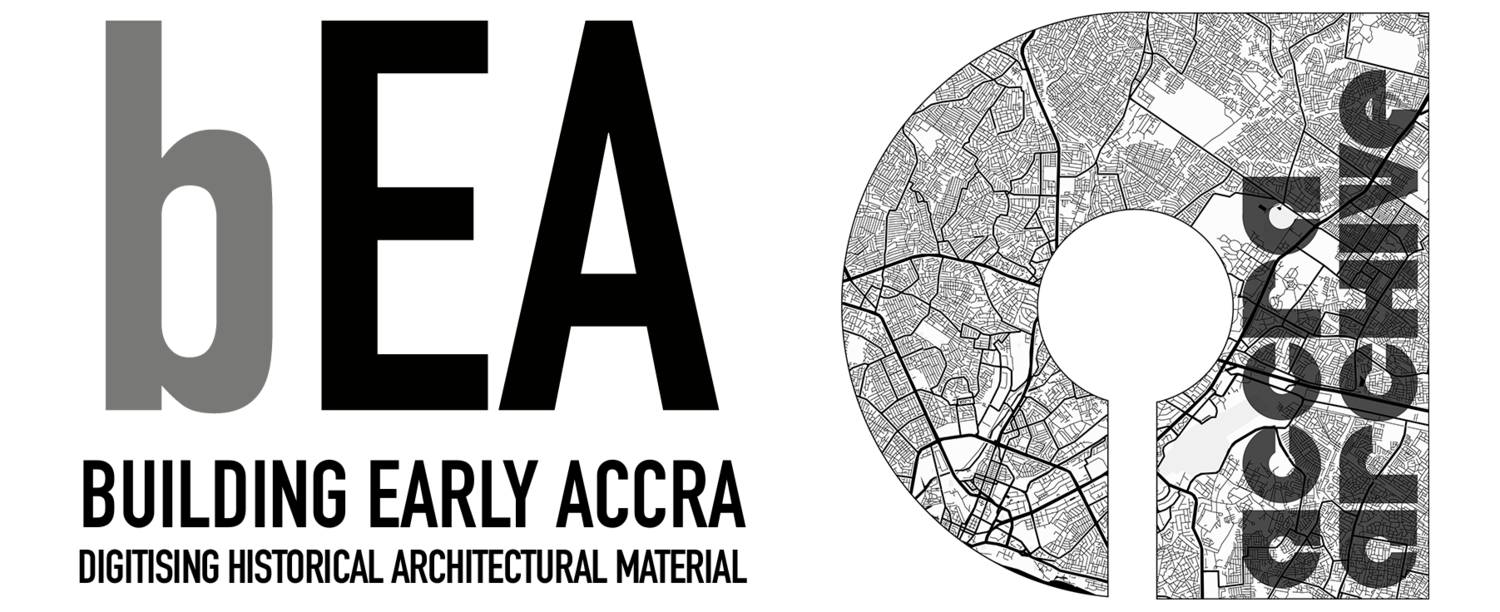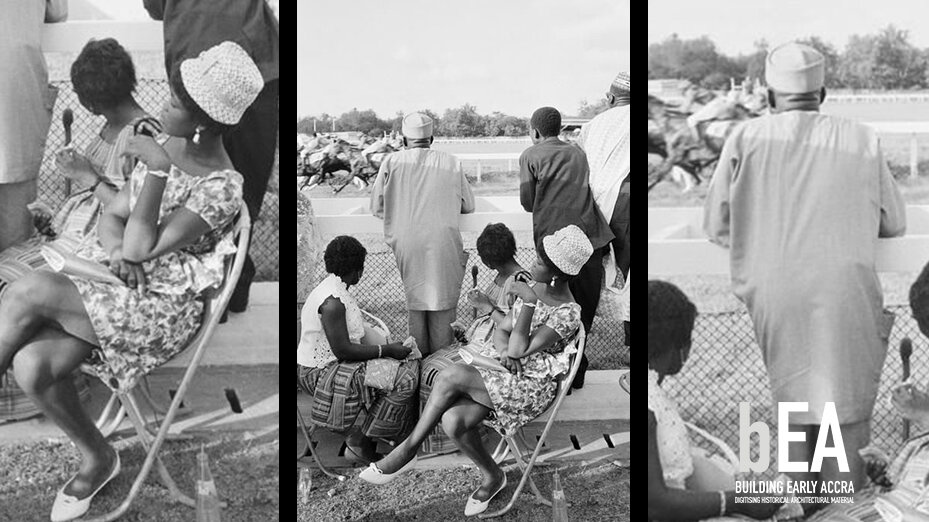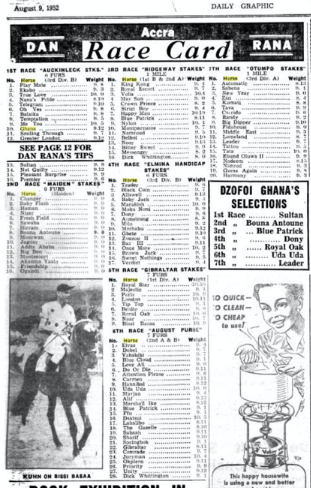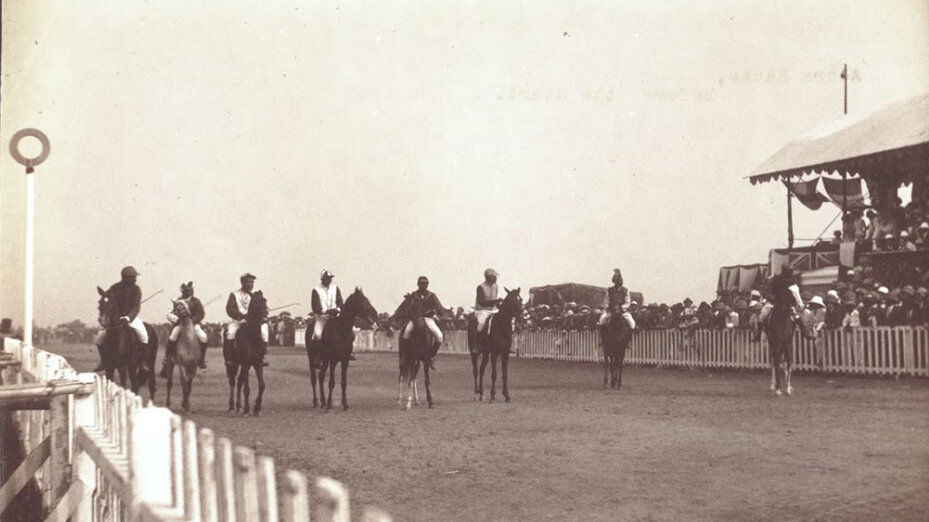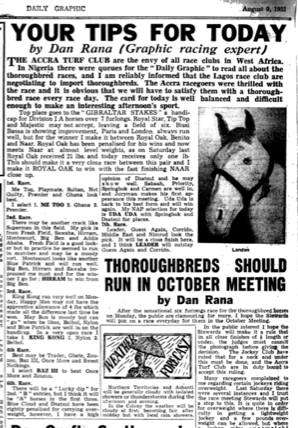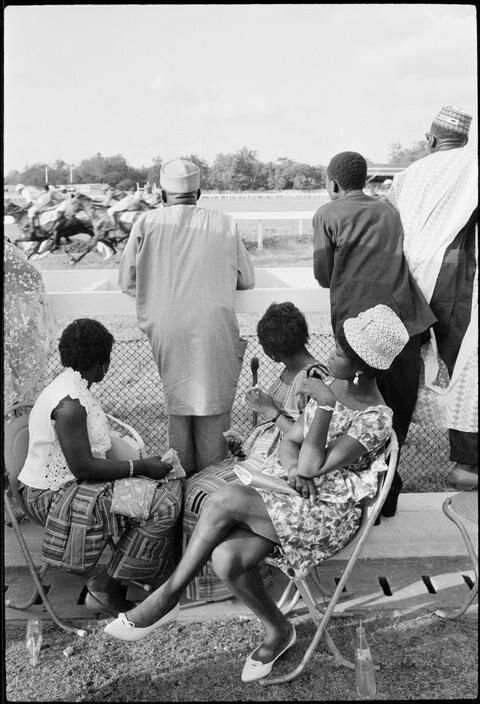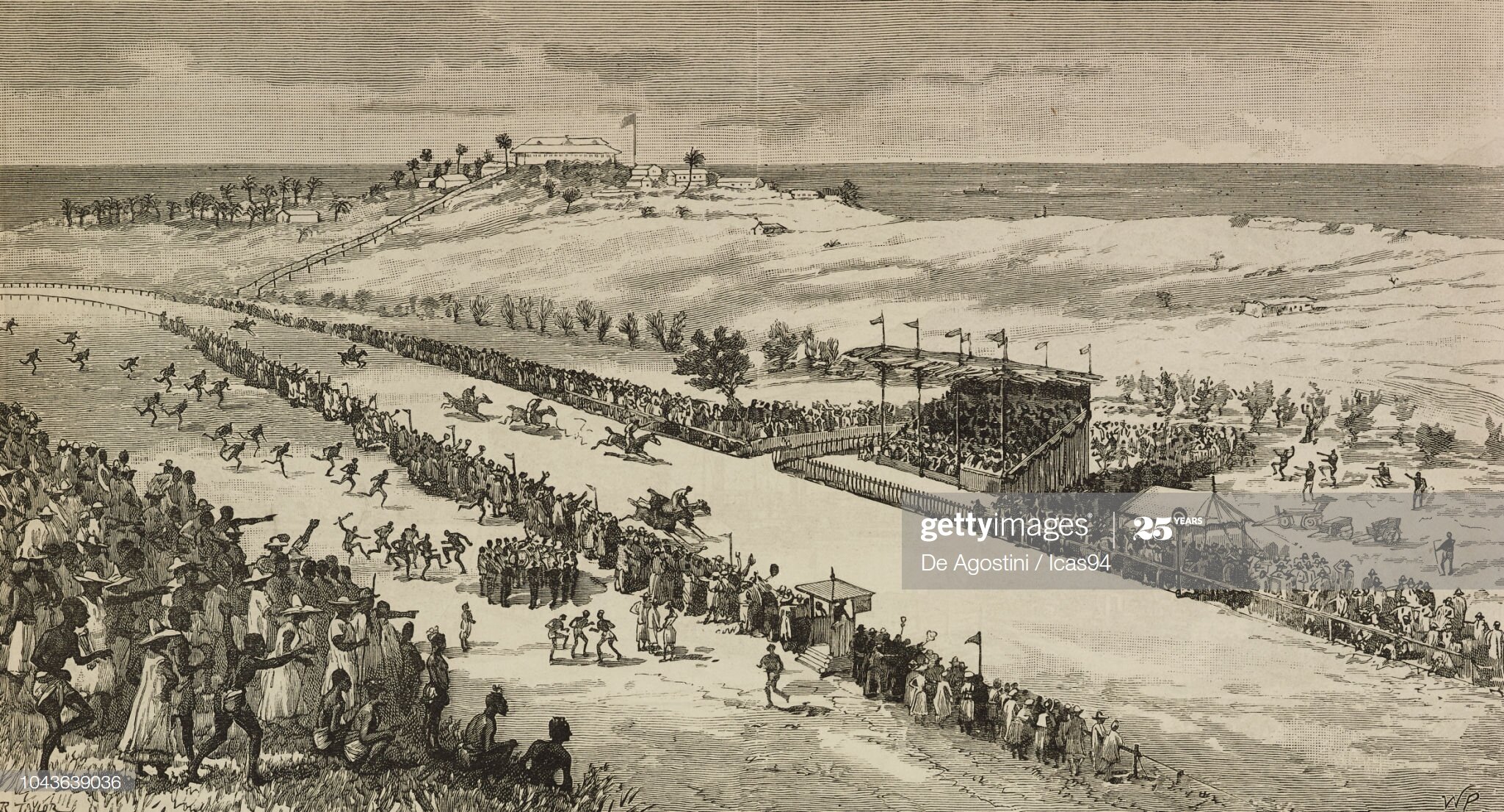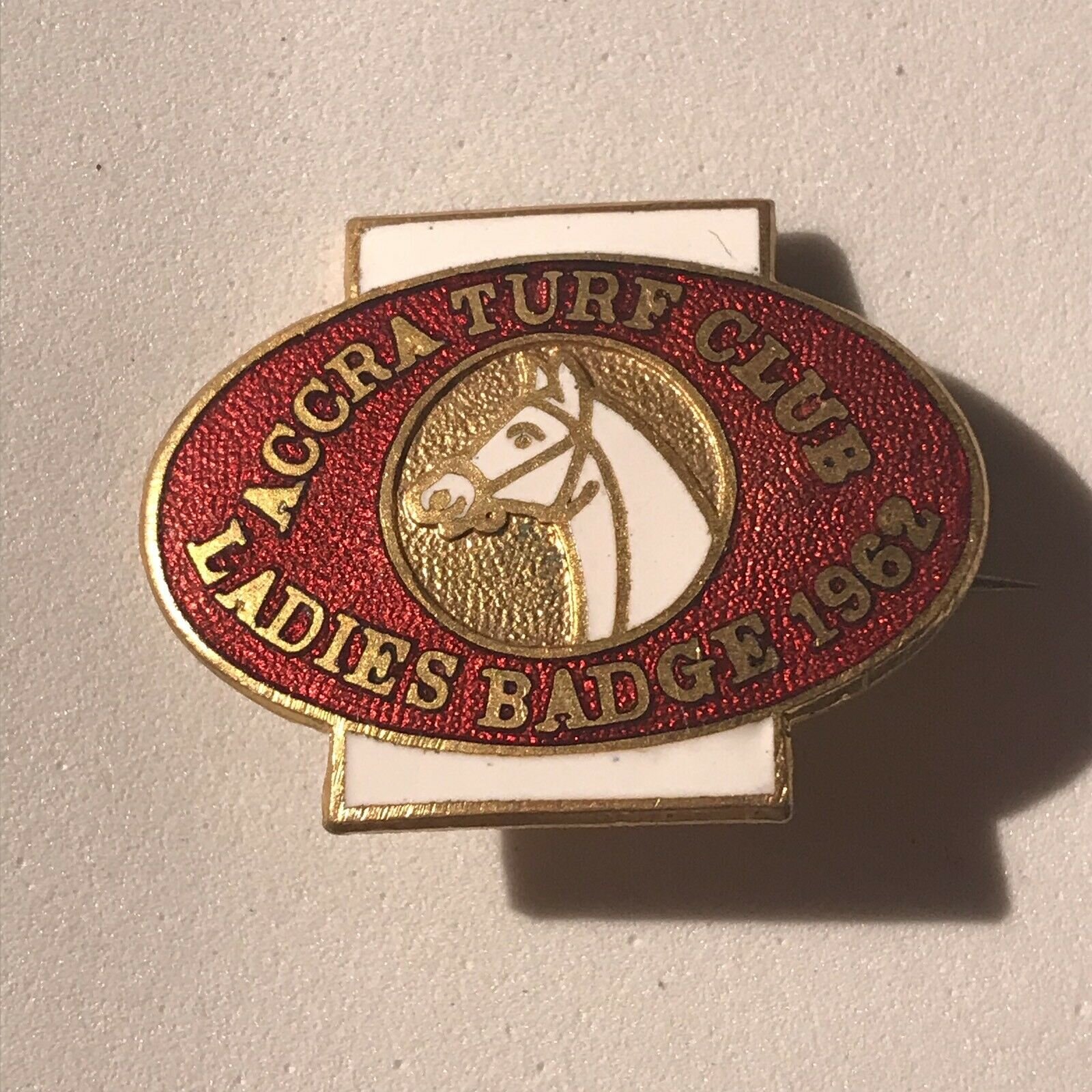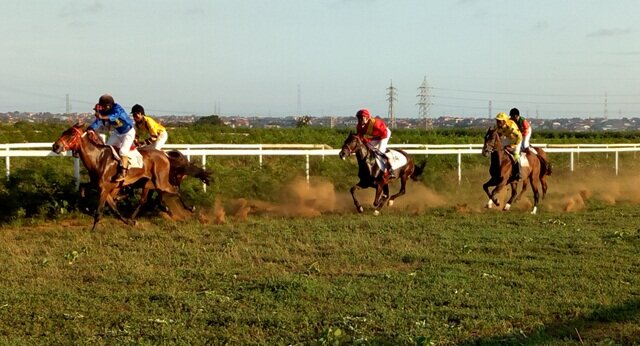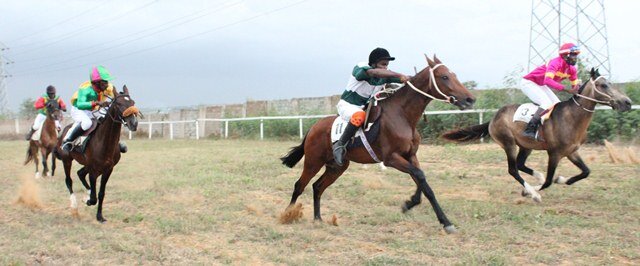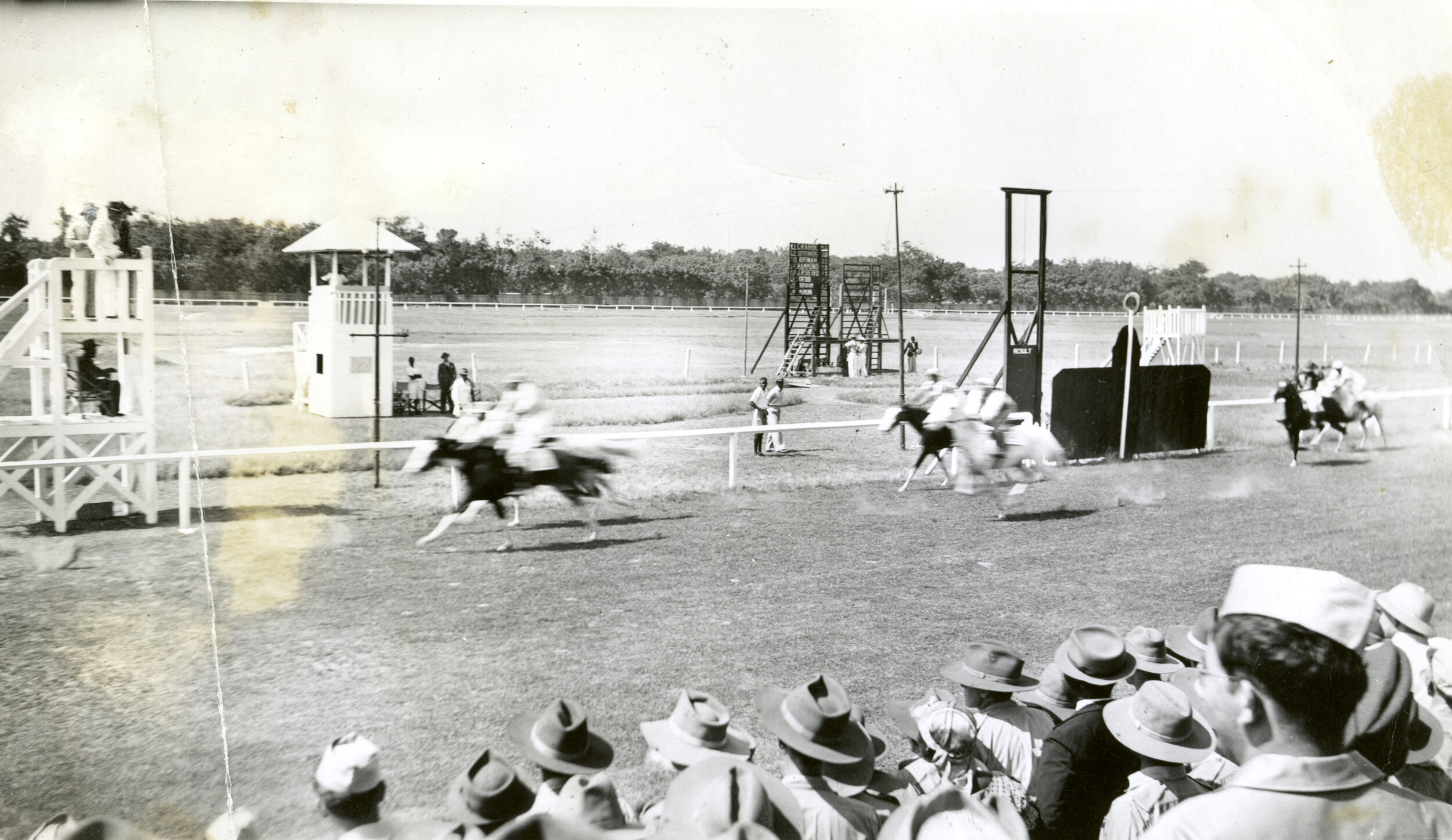Horse Racing in Accra: A Brief History
By Kuukuwa Manful
Horse racing used to be quite a popular sport in the Gold Coast/ Ghana, especially in Accra.
All over the country, festivals, celebratory events and other festive occasions often included a commemorative horse racing event (Ghana Post Report, 1986; Carola Lentz, 2006 ). Elites and aspiring elites would often list “horse racing” as part of their hobbies as a mark of being ‘cultured’.
In Accra, competitive horse riding was initially introduced and mainly patronised by British colonial officials and other European expatriates. This soon expanded to include the native African and AfroEuropean elite, and eventually to include ordinary Gold Coasters from all walks of life.
People watching a horse race in Accra, 1961. Photo by Ian Berry
The first race course in Accra was built near Jamestown in the late 1870s (Ray Jenkins, 1990 ), and by 1925 another race course had been built in Tudu (Aniegye, 2011).
As the sports of horse racing (and polo) grew in popularity, crowds would often to gather to watch and cheer on their favourite horses, teams and jockeys Members of the audience would often be dressed up in the very latest fashions, and the races were one of the places to go in order to see and be seen.
Another development linked to the rapidly growing popularity of competitive horse racing and riding was the business of importation and trade of horses. The main merchants of this trade were European and African Gold Coast elites, as well as Lebanese and Syrian residents in the Tudu area of Accra. Also important in this business were traders from the Northern territories of the Gold Coast, and Yoruba traders (from Nigeria) who had settled in Gold Coast and who were resident in Tudu (Aniegye, 2011).
One notable horse trader was named Imoru, full name Imoru Mobalaji Peregrino-Brimah (D. Ibrahim, 2021)* aka Imoru Lincoln because he was the “first man to import a Lincoln car into the Gold Coast” (Gomda, 2011). From 1930, he run a highly lucrative business in the horse trade from Accra. He eventually became a patron and administrator of the Accra Race Course, a patron of the Accra Turf Club, and also kept a stable in Accra New Town. He also organised tournaments between Ghanaian and Nigerian horse racers and owned racing horses himself that his jockeys raced competitively (Aniegye, 2011).
Horse racing event in Ghana, 1950s. HuntleyFilmArchives
In addition to colonial officials and European expatriates who brought their horse racing traditions over with them to West African colonies, there were vibrant communities of African horse racers and jockeys, several of them from present-day Nigerian, and Hausa states and communities.
Among these jockeys, who were professional riders of race horses, were Kantara Kamara, Seidu Alash, Mahdi and the well-known Alhaji Bako from present-day Nigeria. He began his career as a jockey in 1913 and retired in 1977 (Daily Graphic, 1977).
The jockeys were so well-known and important to the sport that when a group of them went on strike in 1966, it caused quite a commotion. The strike was over a disagreement with the Turf Club about performing a cleansing ritual at a dangerous bend in the Race Course. 11 jockeys had already died by then trying to navigate that bend, and the jockeys asked the authorities to sacrifice a cow to ward off future deaths. The authorities refused, and this led to the strike (Ward, 2006).
Slideshow, Historical Images of Horse Racing in Accra, Ghana/ Gold Coast.
There were a significant number of competitive events horse racing events that were held in Accra. These included the Governors Cup, The Accra Turf Club Races, The Brandford Cup (all pre-independence), and the National Cup (post-independence).
In 1957 the Accra Turf Club was one of the most active Horse Racing Societies, hosting a number of competitive events such as the Ga Homowo Cup (held as part of Homowo celebrations); the 555 Challenge Cup, the Presidential Cup, National Gold Cup, and the Easter Meeting Race. (Laryea, 2016). The Accra Turf Club is still in existence today, and they hold competitive horse racing events.
*A previous version of this article had only one name (Imoru) for Imoru Mobalaji Peregrino-Brimah. A reader, D. Ibrahim unearthed his full name from a court case contesting the “non-Islamic will” that Peregrino-Brimah left behind. He instructed that his horses and stables were his “assets to be passed on”. View the case law at https://www.judy.legal/case/brimah-cobsold-v-asana-b68ad. D. Ibrahim also shared the link to a Daily Guide article that mentions Imoru Mobalaji Peregrino-Brimah.
